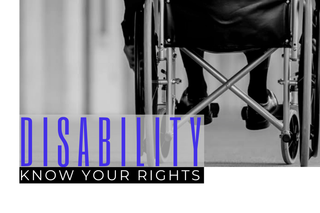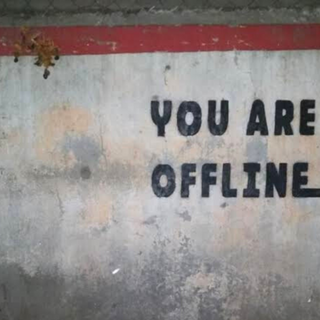
Know Your Rights: Disability Laws in India
People who are differently abled are entitled to free and compulsory education up to 18 years of age.

In Know Your Rights, we simplify the rights you’ve been given, so you know how to exercise them.
According to the 2011 Census, there are 2.68 crore people in India who are differently abled. This means around 2.21% of the total population is differently abled, either physically or mentally.
“A person can face disability — intellectually and physically — at any point in their life from medical complications or life-altering events. Experts agree that a singular, universally accepted definition of disability does not exist,” writes Avantika Shrivastava for The Diplomat. “Even as a set of symptoms can be clustered medically, it is highly likely that each person’s need would differ from that of another with the same medical condition.”
While each person’s needs are understandably different, the rights they’re entitled to per India’s laws are not. Therefore, in this chapter of our series, we focus on the very basic or fundamental rights every differently abled person is given to lead a life free of any discrimination and ensure that they’re granted equal opportunity.
We spoke to senior advocate Mahesh Lange to take us through the Rights of Persons with Disabilities Act (PDA), 2016.
The Act covers 21 types of challenges and the Central Government has the power to add more types. So far, the Act covers:
- Blindness
- Low-vision
- Leprosy
- Hearing impairment (deaf and hard of hearing)
- Locomotor disability
- Dwarfism
- Intellectual disability
- Mental illness
- Autism spectrum disorder
- Cerebral palsy
- Muscular dystrophy
- Chronic neurological conditions
- Specific learning disabilities
- Multiple sclerosis
- Speech and language disability
- Thalassemia
- Hemophilia
- Sickle cell disease
- Multiple disabilities including deafblindness
- Those who have survived acid attacks
- Parkinson’s disease
What are the fundamental rights of people who are differently abled?
The Constitution of India guarantees, all the citizens of India, whether healthy or differently abled, the right of justice; liberty of thought, expression, belief, faith, and worship; and equality of status and of opportunity.
It states that no differently abled person can be discriminated against on the grounds of their religion, caste, race, sex, or place of birth.
No one with abilities covered in the above list can be denied access to shops, restaurants, hotels, or places of entertainment, such as malls and theaters, or any public place, including places of religion.
Do people who are differently abled have access to education?
Yes. No one with abilities covered in the above list can be denied the right to education or admission into any educational institution, “maintained by the State or receiving aid out of State funds,” per the PDA. Under the Right to Education Act, students are entitled to free and compulsory education for children between six and 14. For the children with disabilities, the age has been extended up to 18 years.
Related on The Swaddle:
Communicating Better With People With Disabilities
Can people who are differently abled get married?
Different laws for different communities, such as the Hindu Marriage Act, 1955, the Christian Marriage Act, 1872, and the Parsi Marriage and Divorce Act, 1935, also apply to people with disabilities. However, marriage will be granted depending on the degree of difference in the partners’ abilities. For instance, marriage in cases where a person has cognitive disabilities or where one party is unable to give valid consent, due to unsoundness of mind or a mental disorder of such a kind and extent as to be unfit for “marriage for procreation of children,” is not permitted under the law.
Can people who are differently abled own or inherit property?
Under various laws for different communities, i.e., Hindus, Muslims, and Parsis, there is no discrimination against people who are differently abled in terms of owning or inheriting property. They are even entitled to make a will, provided they understand the consequences of writing it.
Are people who are differently abled allowed to work?
The law mandates that 3% of vacancies in government jobs be reserved for people who are differently abled. Per the law, no differently abled person can be sacked or demoted if they get disabled at the time of service, but they can be moved to another post ensuring them the same pay and conditions. But even if people with disabilities have joined work in the condition that they have, no promotion can be denied to them.
Anubhuti Matta is an associate editor with The Swaddle. When not at work, she's busy pursuing kathak, reading books on and by women in the Middle East or making dresses out of Indian prints.
Related


Researchers Try Making Memes Accessible for the Visually Impaired
